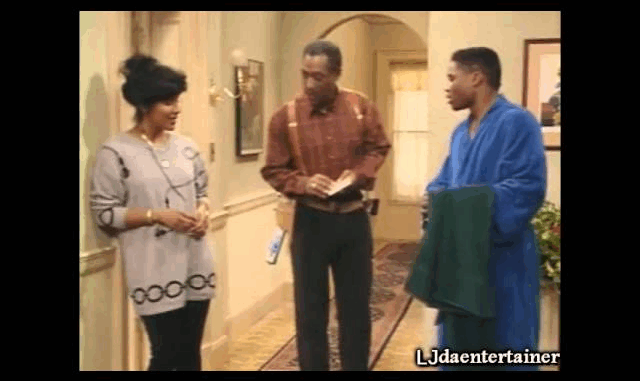
Decades after its final episode aired, The Cosby Show continues to spark conversation, inspire creators, and shape the way we remember television’s golden moments. More than just a sitcom, it was a cultural landmark that blended humor with heart, breaking racial barriers and redefining how families—Black or otherwise—were portrayed on screen.
Breaking Barriers with Every Episode
When The Cosby Show premiered in 1984, few could have predicted how quickly it would become a national phenomenon. Unlike many of its predecessors, the show didn’t rely on loud punchlines or chaotic drama. Instead, it offered something revolutionary in its simplicity: a stable, loving Black family at the center of the narrative.
The Huxtables were relatable yet aspirational. Cliff Huxtable’s goofy charm and Clair Huxtable’s elegant strength made them one of TV’s most iconic couples. Through their interactions with their five children, audiences witnessed thoughtful parenting, generational lessons, and the joyful messiness of everyday life.
A Blueprint for Modern Sitcoms
Long before shows like Black-ish or Fresh Prince of Bel-Air graced our screens, The Cosby Show laid the foundation. It proved that audiences would embrace Black leads and stories centered on family values, education, and personal growth. It showed that diversity could mean more than just inclusion—it could mean leadership in primetime entertainment.
Its influence went beyond representation. The show’s clean storytelling, character-driven humor, and seamless blend of comedy with real-life issues set a new benchmark for the sitcom genre. It dared to tackle topics like dyslexia, teen rebellion, and gender roles—all with nuance and grace.
The Art vs. The Artist Dilemma
In recent years, The Cosby Show has come under scrutiny due to the serious criminal charges against its star, Bill Cosby. For many fans, this has complicated their relationship with the series. The question remains: can a groundbreaking show be appreciated, even when its central figure is no longer held in high regard?
For some, the answer lies in recognizing the collective work of the cast, writers, and crew—many of whom were pioneers in their own right. Phylicia Rashad’s portrayal of Clair Huxtable, for instance, remains a standout example of strong female representation on TV. The legacy of The Cosby Show belongs to more than one man.
Conclusion: A Legacy That Outlives Controversy
Despite its complicated legacy, The Cosby Show remains a vital piece of television history. It opened doors, shifted narratives, and gave viewers across the world a reason to laugh and reflect.
In an ever-changing media landscape, the impact of The Cosby Show is still felt today. It taught us that comedy could be meaningful, that representation matters, and that sometimes, the best stories are the ones that bring us back to the basics: love, family, and a good laugh after a long day.